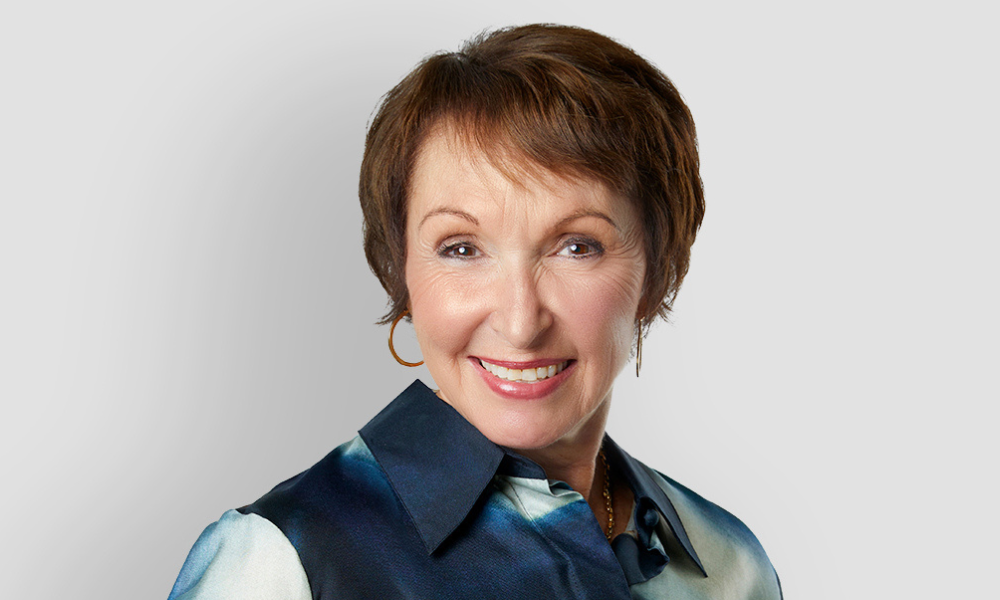
Paperny's community work involves helping to resettle Afghan women judges in Canada

Joining a law firm again after 30 years on the bench made Marina Paperny feel a bit like Rip Van Winkle, suddenly emerging into a strange new world. Organizationally unrecognizable due to technology, there are very few still around who practised when she last did. The onboarding process involves much new to learn, but she has been thrilled at the young lawyers “with incredibly inquiring, sharp minds” who want to pick her brain.
“How does it feel? It feels wonderful, exhilarating, and a little bit scary,” she says.
Paperny has much to offer the firm’s inquiring young minds. She spent 27 years as a judge on the Alberta Court of King’s Bench, the Court Martial Appeal Court of Canada, and the Courts of Appeal for Alberta, the Northwest Territories, and Nunavut, presiding over thousands of hearings. Before the bench, she practised at Howard Mackie – one of BLG’s predecessors – before taking the president and general counsel role at a private investment firm focusing on real estate development and medical imaging. She joins the BLG litigation practice.
“I see my role largely as being a mentor.” As a sounding board with an open door, she says she will share her experience and insight from years on the bench to assist litigators in preparing for trial and strategizing.
Throughout her judicial years, Paperny sat on several matters that significantly impacted the law.
D.B.S. v. S.R.G went to the Supreme Court of Canada and established the test determining when retroactive child support orders should be granted and what legal principles should apply. Paperny says it was “pretty interesting” to lay the groundwork for the policy shift to a more child-centred approach in the law.
In 2016, Paperny was on the Alberta Court of Appeal panel, which decided Canada (Attorney General) v E.F., 2016 ABCA 155, a landmark case in medical assistance in dying (MAID). The case came after Carter v Canada (Attorney General), 2015 SCC 5, which struck down the Criminal Code’s MAID prohibition before the Federal Government enacted its MAID legislation in Bill C-14. In E.F., the court granted an exemption to the prohibition for a woman suffering from chronic pain and a psychiatric illness.
“It was meaningful,” says Paperny. “It helped a lot of people, and I think it really helped this particular person and her family, who were very supportive of it.”
She says her most exciting case as a trial judge involved the restructuring of Canadian Airlines Corporation in 2000, which had profound social and economic implications for Canadians.
“It was a very interesting and challenging time. The truth is that my entire judicial career has been filled with very interesting, meaningful cases. Even if they don't have a national effect, they have human implications. I've been very humbled to sit on the bench for almost 27 years. It was a real honour.”
As a lawyer, Paperny built a specialty in family law and corporate commercial litigation, including restructuring. With that background, she heard plenty of those types of cases as a judge, as well as many criminal matters.
Beyond her judicial role, Paperny has filled her time with community involvement on pressing issues for the justice system and Canadian society more broadly.
She is a founding board member of Pro Bono Law Alberta.
“It was pretty clear to everybody who was in the legal profession that access to justice was a profound challenge… It became important to break down some of the barriers and provide a forum for discussion, philosophically, on how to approach this problem of access to justice. The problem is not fixed, but I do think it has been ameliorated.”
She has also been a board member of the Canadian chapter of the International Association of Women Judges, with which she has been involved in assisting women judges to leave Afghanistan and resettle in Canada following the Taliban takeover. Since August 2021, women judges have lost their jobs, had their lives threatened, and been forced to flee the country. Paperny is gathering economic, emotional, and social support for Afghan judges and their families who are now resettling in Calgary, including by helping them build their English language skills to continue their legal careers in Canada.
“Their stories are harrowing. Their ability to adapt is remarkable. And working with them and their families is pretty inspiring.”
Also, with the International Association of Women Judges, Paperny is leading a project on the retention of women and minorities in the legal profession. It is an “age-old problem” that she hopes her new role with BLG and insight into law firm EDI initiatives can help inform.